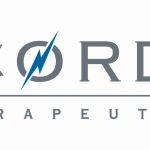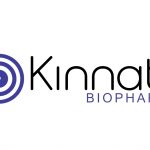The “Artificial Intelligence (AI) In Drug Discovery Global Market Report 2022, By Technology, By Drug Type, By Therapeutic Type, By End-Users” report has been added to ResearchAndMarkets.com’s offering.
The global artificial intelligence (AI) in drug discovery market is expected to grow from $791.83 million in 2021 to $1042.30 million in 2022 at a compound annual growth rate (CAGR) of 31.6%. The market is expected to reach $2994.52 million in 2026 at a CAGR of 30.2%.
The artificial intelligence (AI) in drug discovery market consists of sales of AI for drug discovery and related services. Artificial Intelligence (AI) for drug discovery is a technology that uses a simulation of human intelligence process by machines to tackle complex problems in the drug discovery process. It helps to find new molecules to identify drug targets and develop personalized medicines in the pharmaceutical industry.
The main technologies in artificial intelligence (AI) in drug discovery are deep learning and machine learning. Deep learning is a machine learning and artificial intelligence (AI) technique that mimics how humans acquire knowledge. Data science, which covers statistics and predictive modelling, incorporates deep learning as a key component.
Want to publish your own articles on DistilINFO Publications?
Send us an email, we will get in touch with you.
The different drug types include small molecule, large molecules and involves various types of therapies such as metabolic disease, cardiovascular disease, oncology, neurodegenerative diseases, others. It is implemented in several end-users including pharmaceutical companies, biopharmaceutical companies, academic and research institutes, others.
The rise in demand for a reduction in the overall time taken for the drug discovery process is a key driver propelling the growth of the artificial intelligence (AI) in drug discovery market. Traditionally, it takes three to five years for animal models to identify and optimize molecules before they are evaluated in humans whereas start-ups based on AI have been identifying and designing new drugs in a matter of few days or months.
For instance, in 2020, the British start-up Exscientia and Japan’s Sumitomo Dainippon Pharma have used artificial intelligence to produce an obsessive-compulsive disorder (OCD) medication, decreasing the development time from four years to less than one year. The reduction in overall time taken for the drug discovery process drives the artificial intelligence (AI) in drug discovery market’s growth.
The shortage of skilled professionals is expected to hamper the AI in drug discovery market. The employees have to re-train or learn new skill sets to work efficiently on the complex AI machines to get the desired results for the drug. The shortage of skills acts as a major hindrance to drug discovery through AI, discouraging companies from adopting AI-based machines for drug discovery.
Source: PharmiWeb








